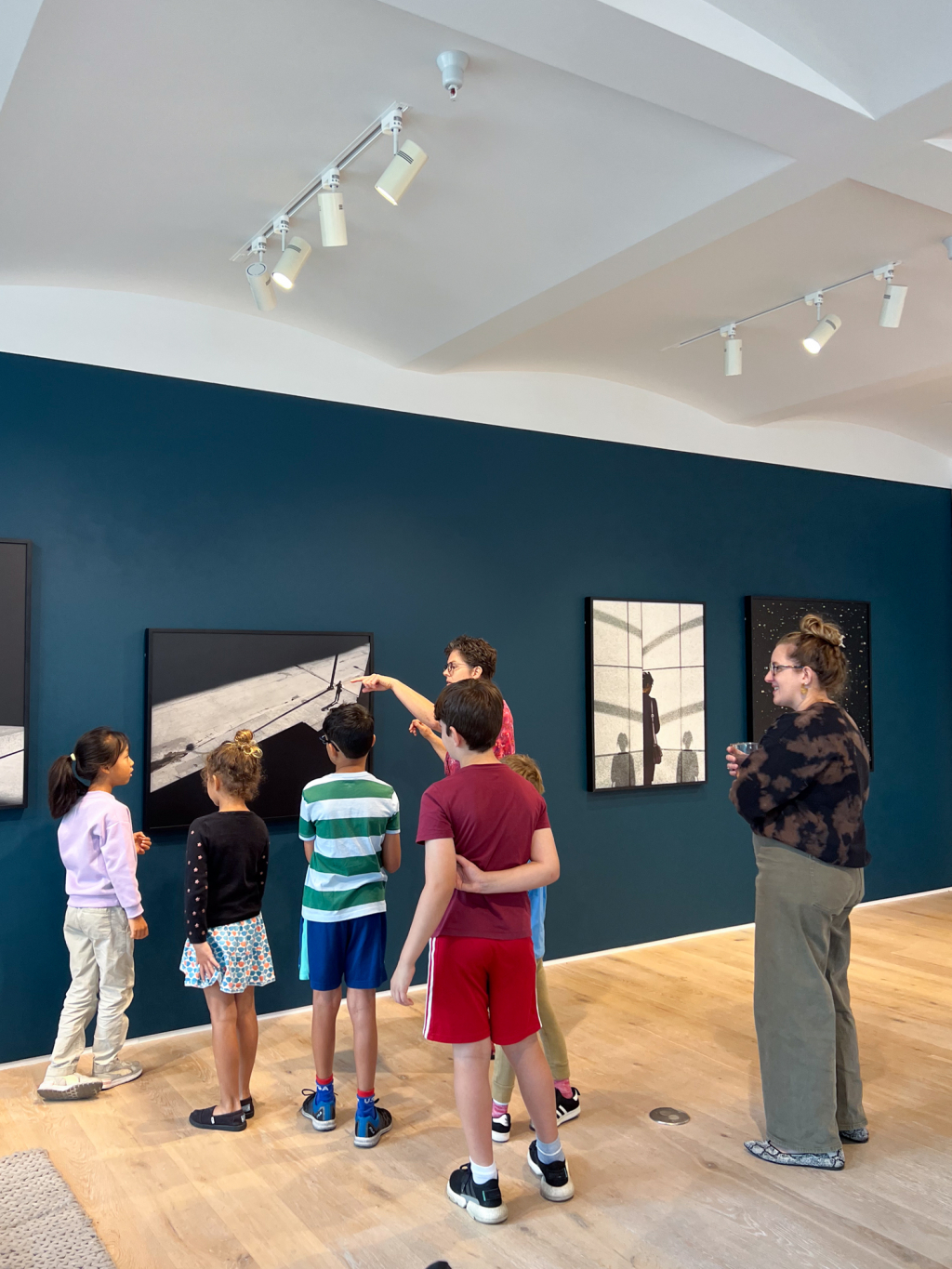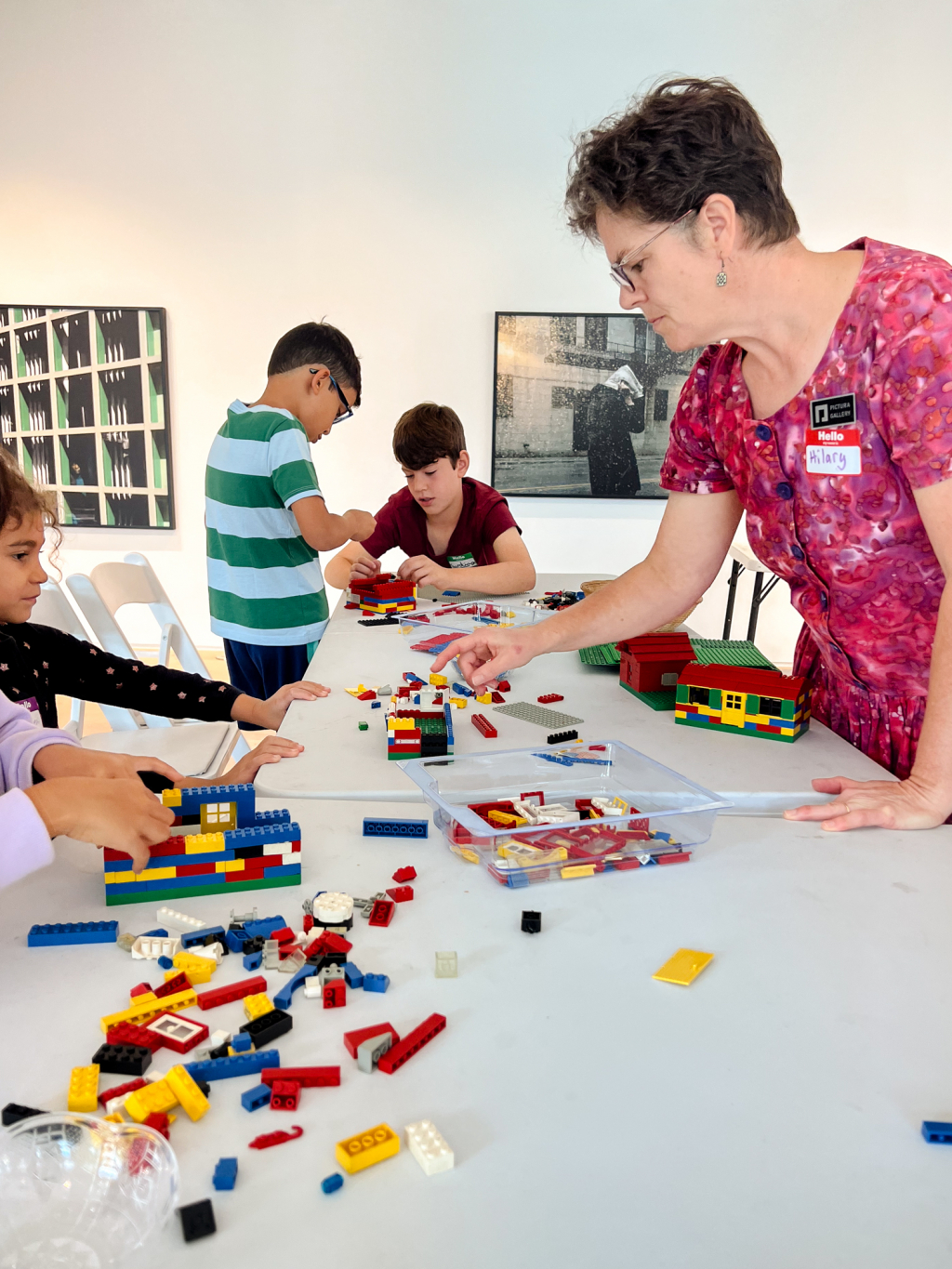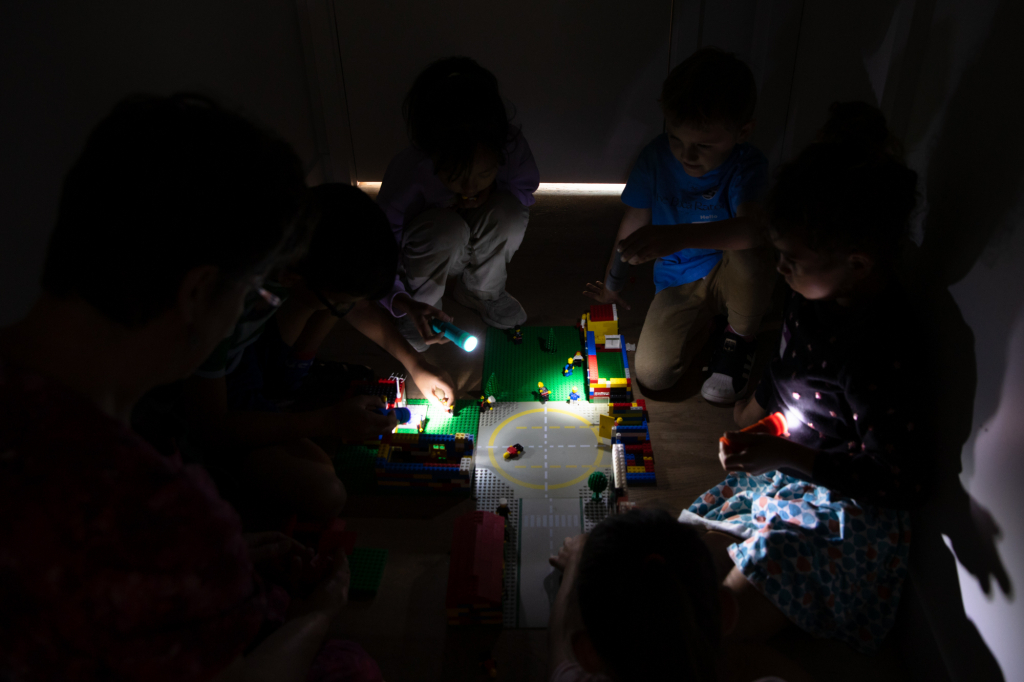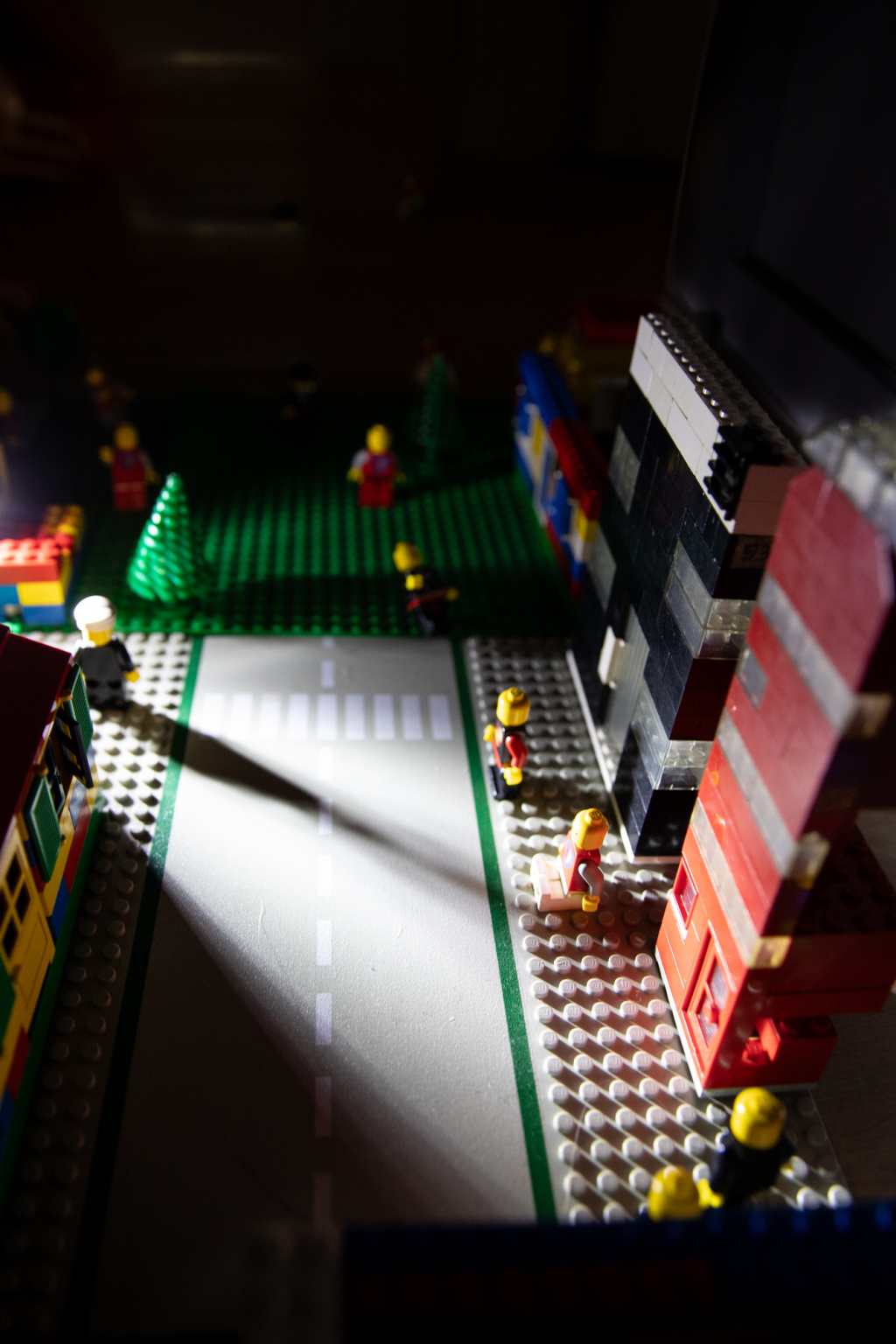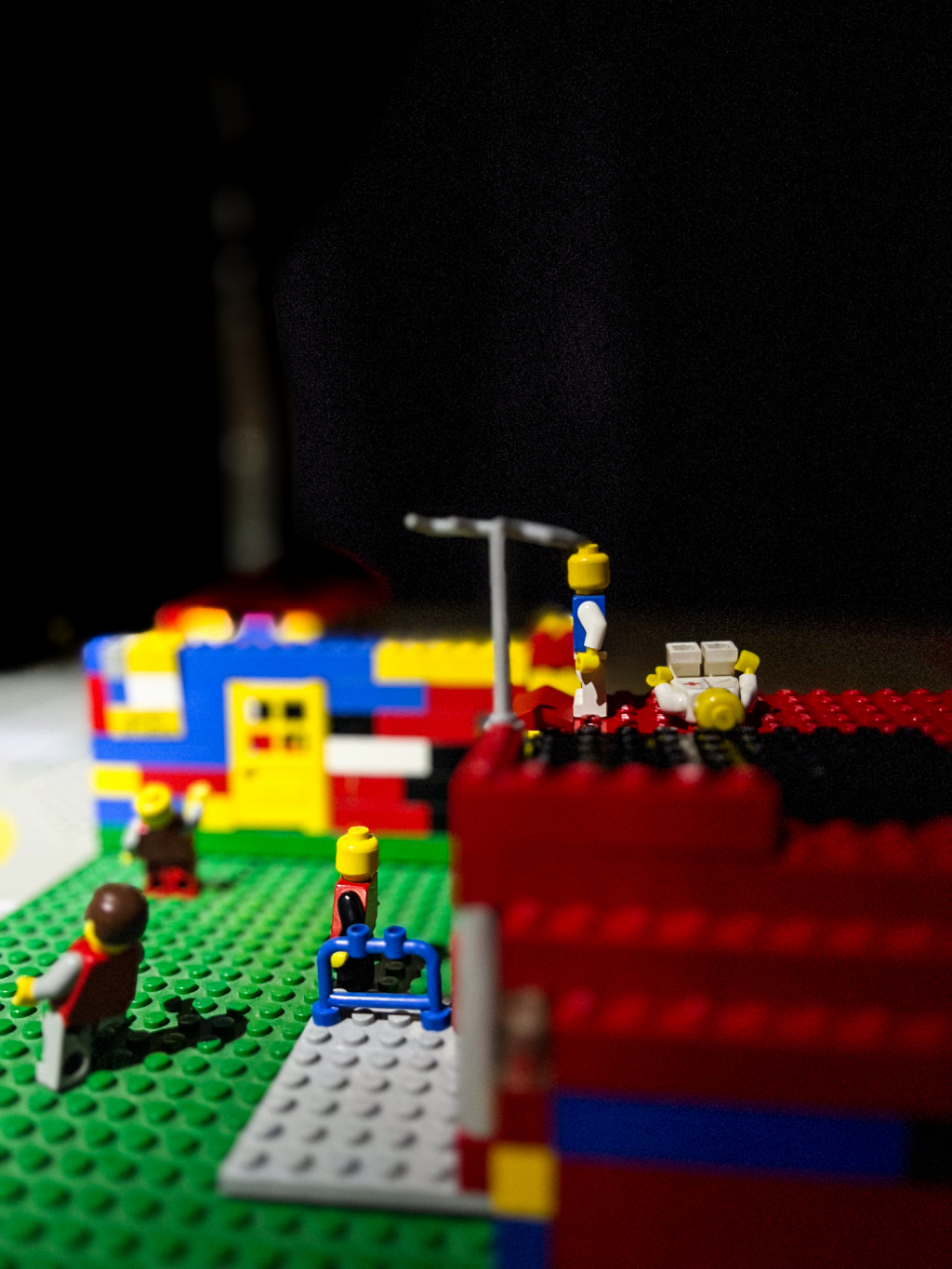Clarissa Bonet | Opening Reception
September 12, 2024| curatorial
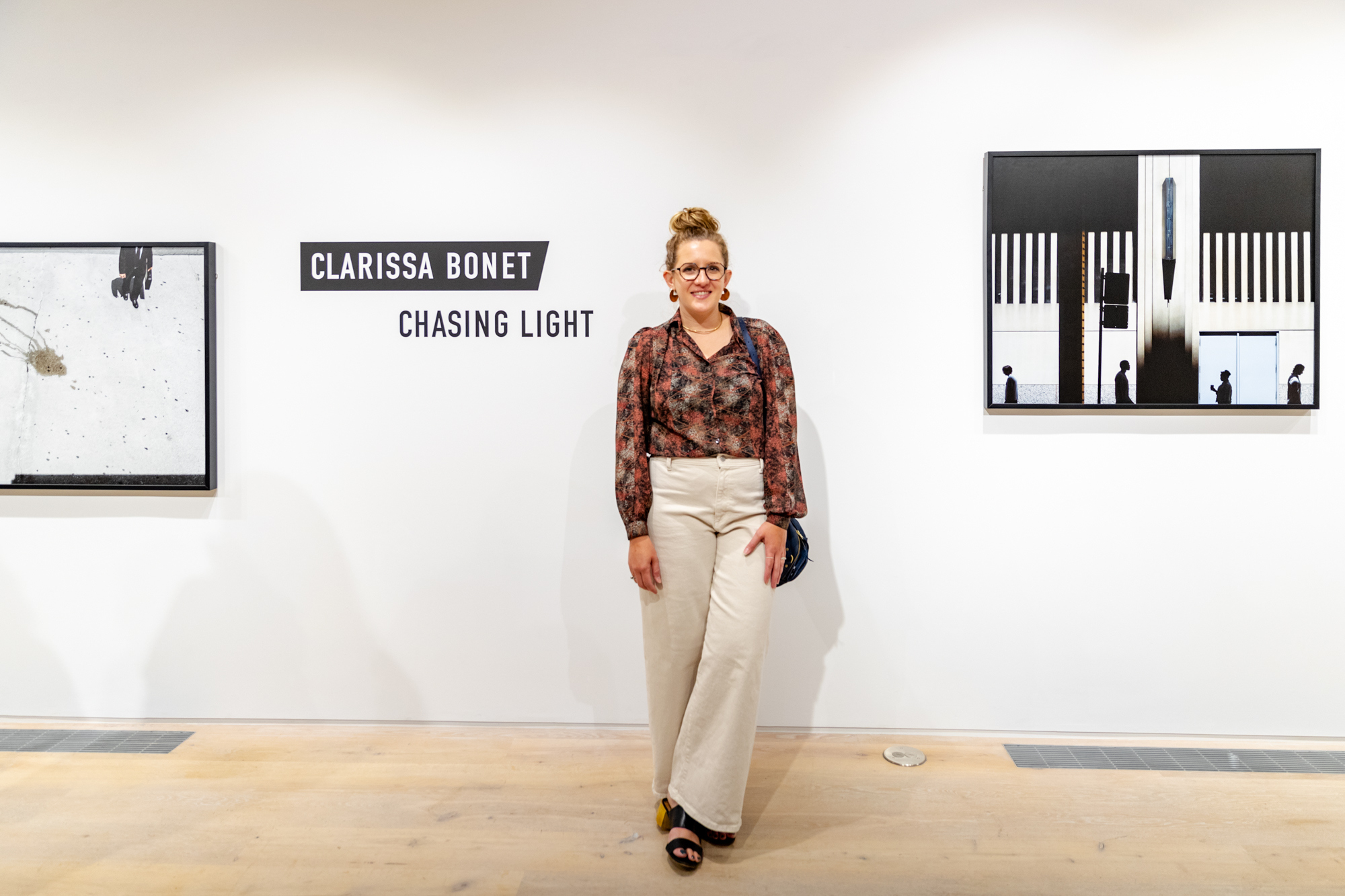
Clarissa Bonet’s photographs feel like someone has pressed pause on the hive of the metropolis, to see what happens inside a single frame of time. In City Space, Bonet studies the shape and behavior of sunlight and shadow, and then carefully constructs street scenes that feel suspended, briefly illuminating the psychological space that runs under the daily routines. Her pictures exemplify photography’s power to slow and clarify our vision in the bustle of the city.
Early 20th century street photographers were alive to this power. And still today, an encounter with a print by Alfred Stieglitz, Paul Strand, or Henri Cartier-Bresson can awaken a kind of holy curiosity towards strangers from the past, and at photography’s unique capacity to render human activity into visual patterns. Bonet’s work can rouse similar feelings of discovery, but with novel perspective and technique.
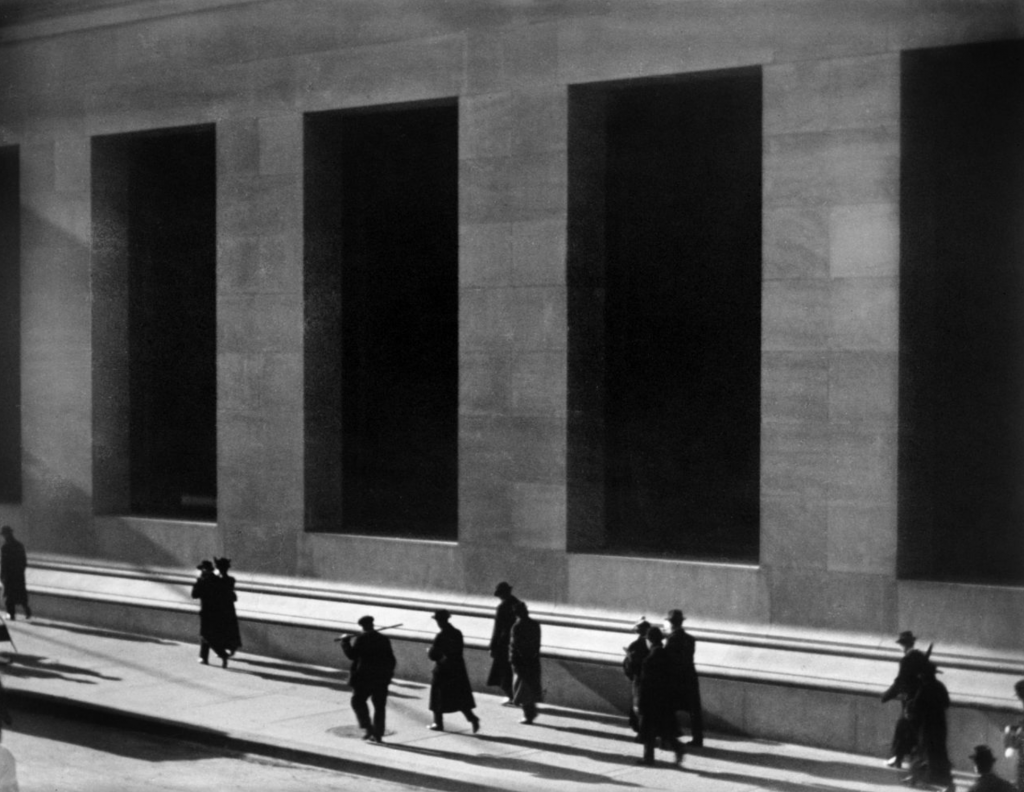
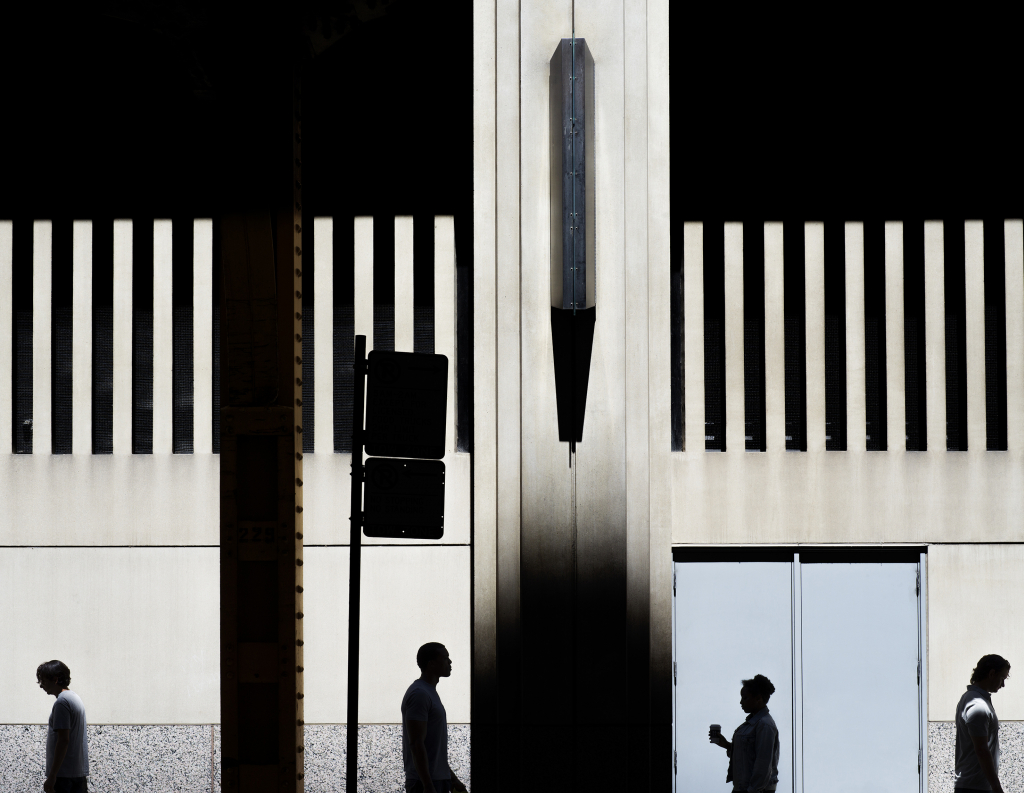
Left: Paul Strand, ‘Wall Street’ 1915 // Right: Clarissa Bonet, ‘Trajectory’ 2018
Bonet looks for traces of people in the city, where their presence can be felt in something hidden. Half a face can be seen looking out from a grid of slatted windows. A spill left on the pavement marks a forgotten drama from earlier in the day. A close look at the silhouette of a man on the sidewalk reveals that his camera is trained to the spot where we, the viewers, are positioned and concealed in the shadows. Dark space in Bonet’s city feels somehow alive, like a plant that grows and recedes and claims territory. Shadows become additional characters, like projections of a person’s interior thoughts.
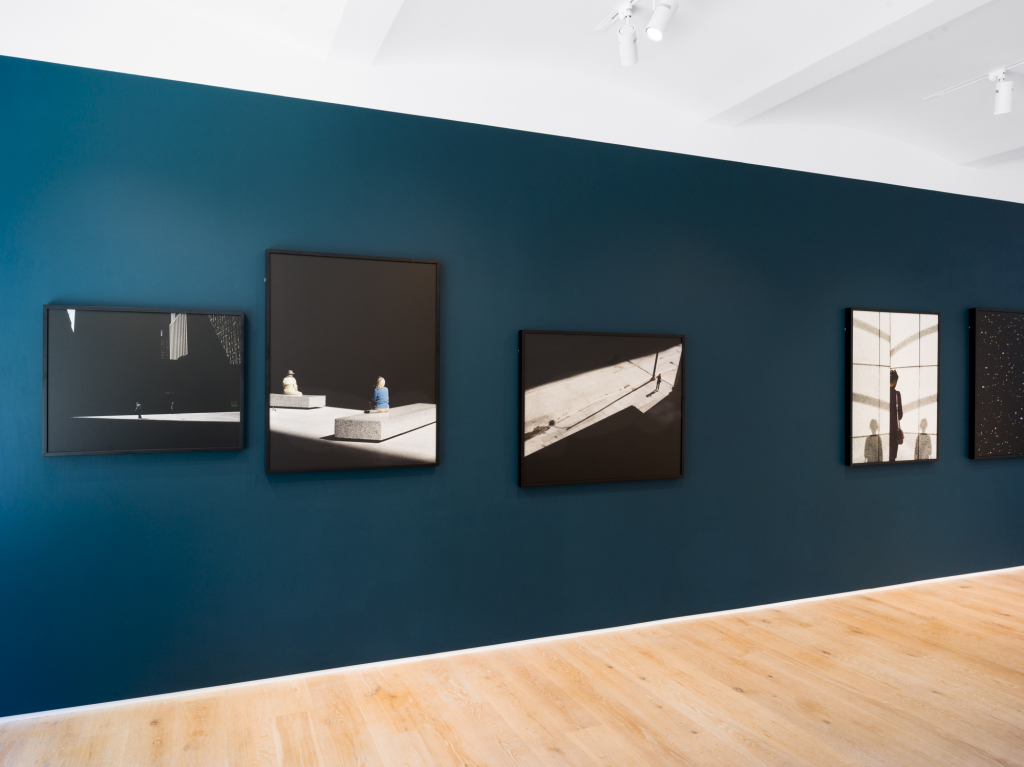
The figures who traverse the city carry their own problems, dilemmas, and daydreams through the urban passageways. They don’t seem to know they are being watched. They are each lost in their own moment, in the loneliness of the city, but also in its neutral open space. People navigate structures and stone pillars like an obstacle course in a sleepwalker’s trance.
Two prints from the series Stray Light are included in this exhibition. They observe the metropolis with even more distance and clarity. Bonet studies the arrangements that people form on the street during the day, and then traces them home at night, as they ascend into tall boxes behind grids of illuminated windows. In a place where excessive artificial light floods out the view of the stars, Bonet forms constellations of glowing squares that replicate them in the night sky.
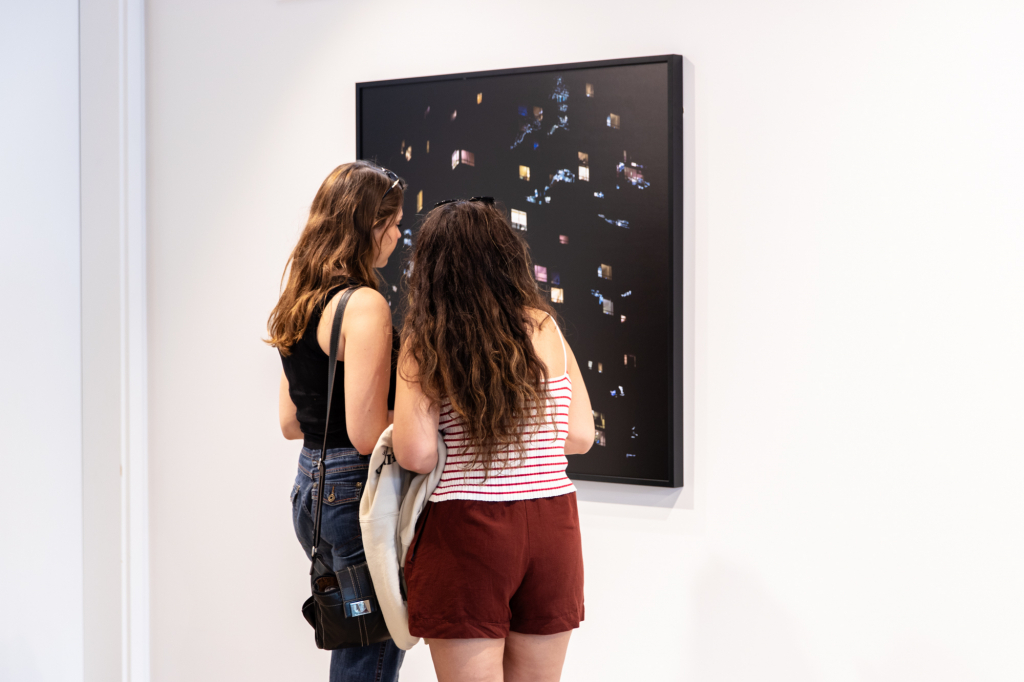
The scenes feel real and unplanned, but the lighting and the formal staging are so resolved that the photographs have a cinematic edge. They read like a film set, perhaps a minute or two after the decisive action. Despite the quiet, there’s a monumental feeling lurking behind each image.
-Lisa Woodward + Mia Dalglish
See more of Clarissa’s work HERE
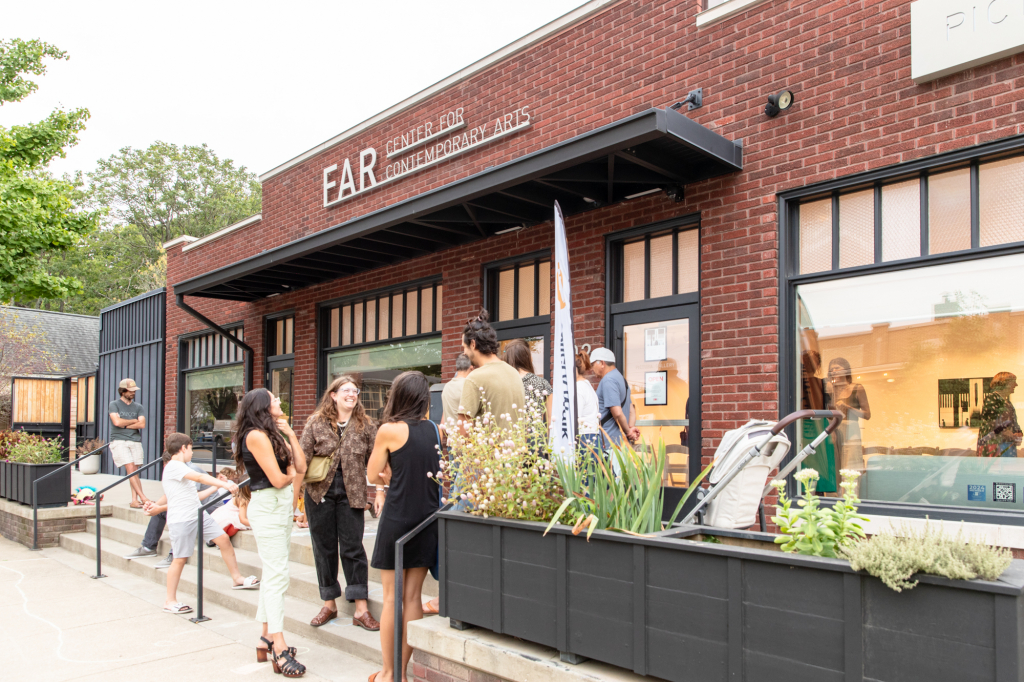
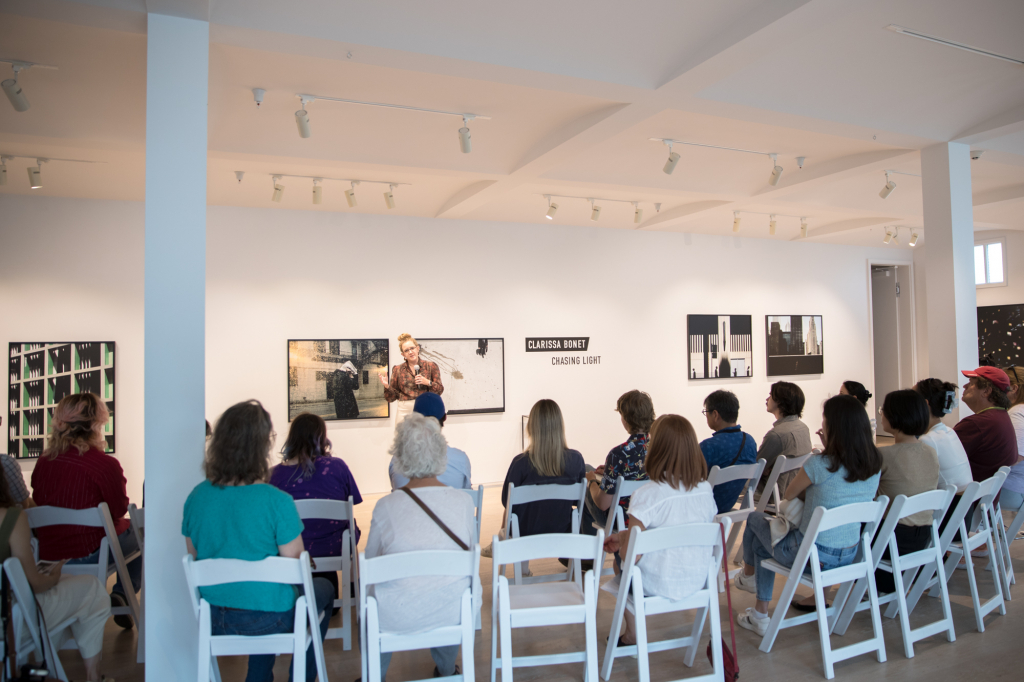
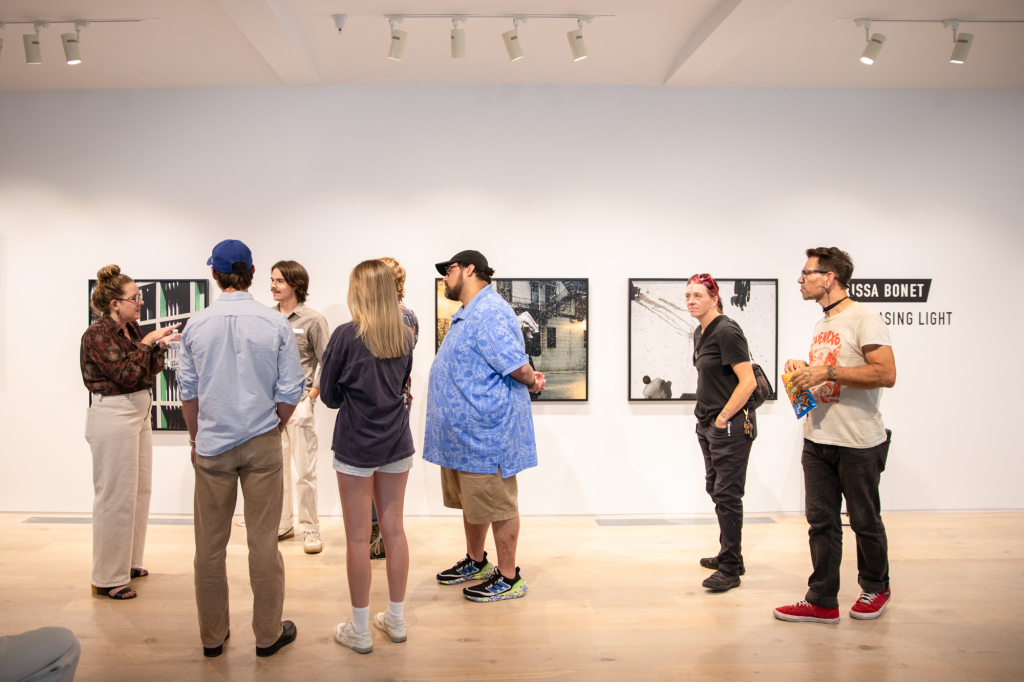
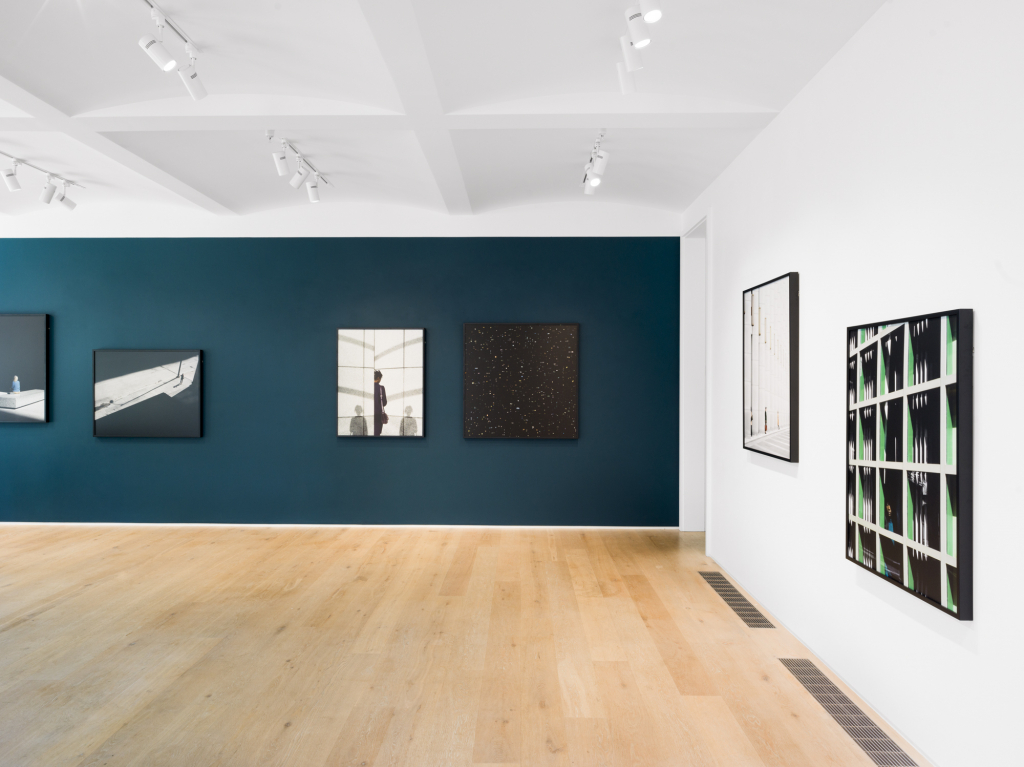
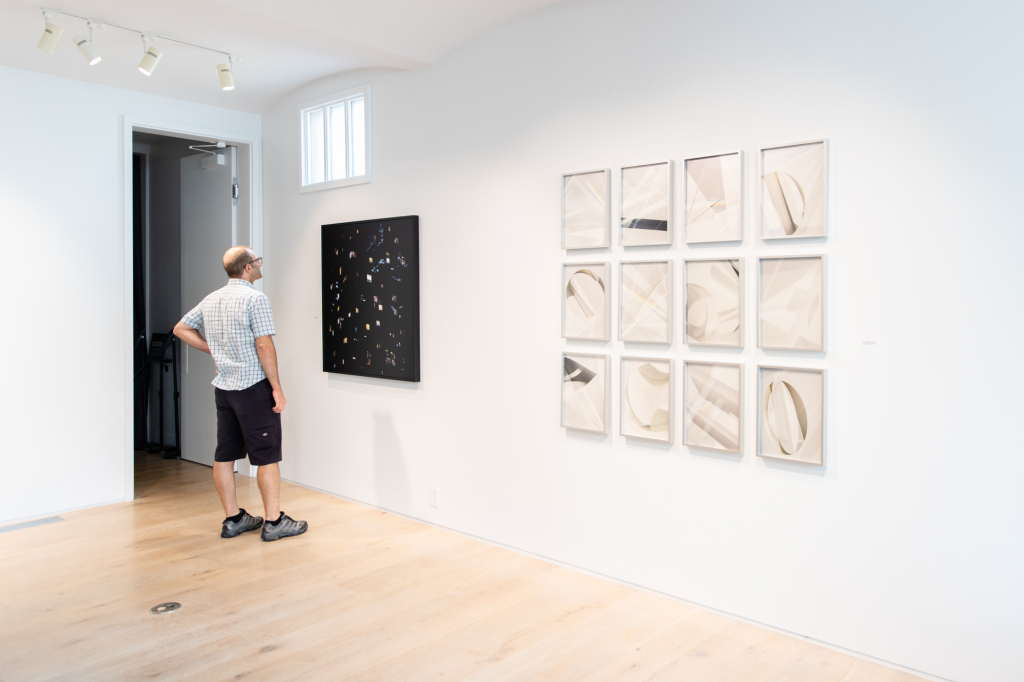
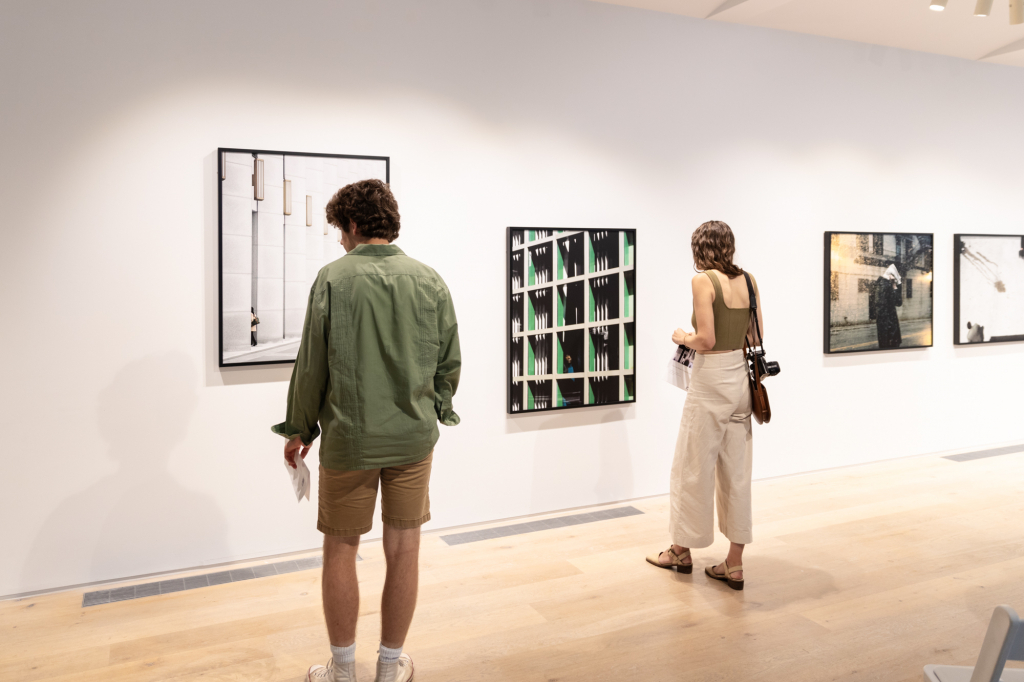
In conjunction with the opening of ‘Chasing Light’, the Pictura Gallery hosted a kid’s workshop that encouraged our younger audiences to engage with the images on display in the gallery and to imagine themselves in Clarissa Bonet’s shoes as the photographer in a bustling city. Children wandered through the gallery pointing out windows, shadows, and people throughout the images, then used these photographs as inspiration to build their own Lego city. After adding the finishing touches to their cityscape, the kids were able to take their own photos inspired by ‘Chasing Light’, complete with flashlights to experiment with the ways that light, shadow, and perspective can affect a city scene.
